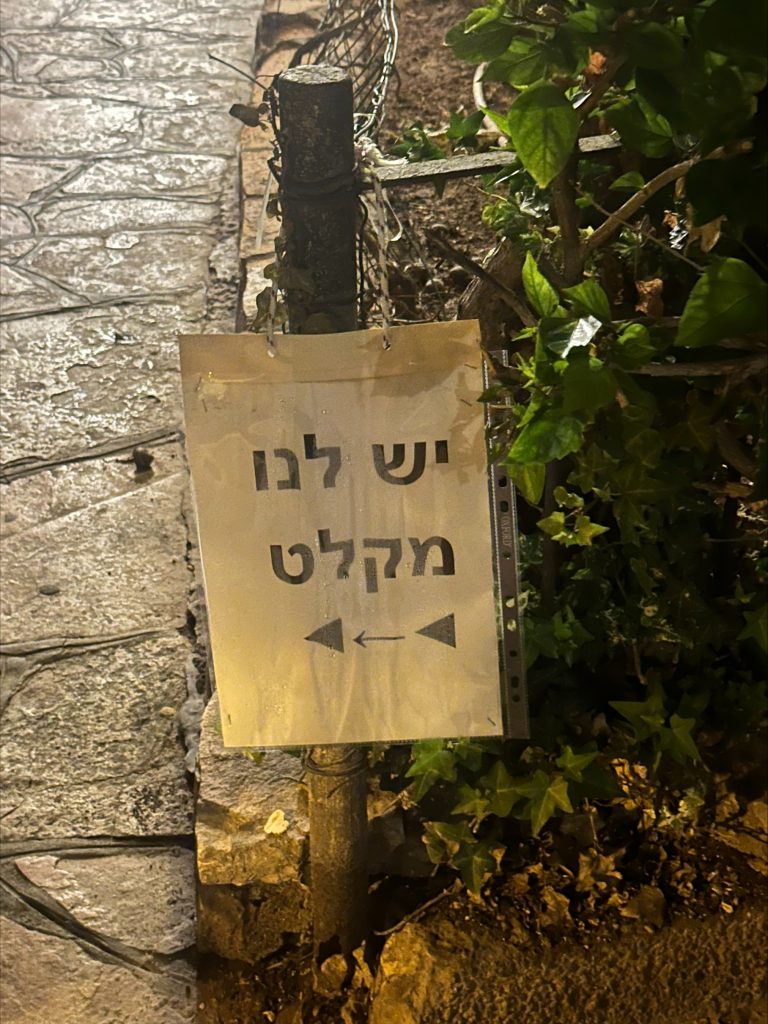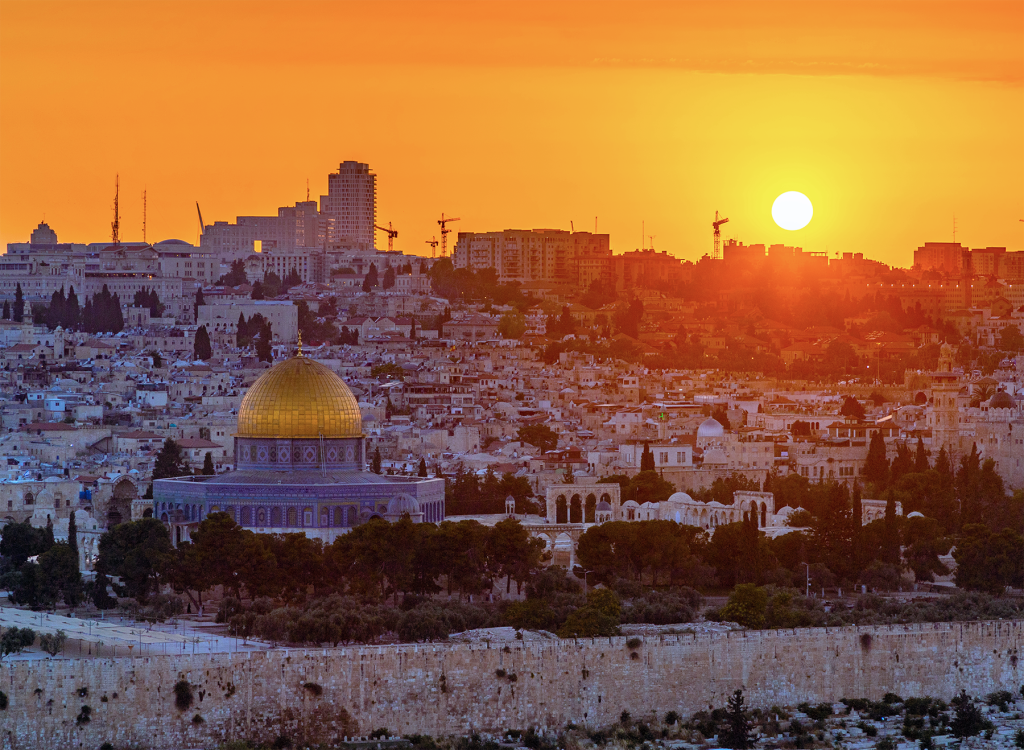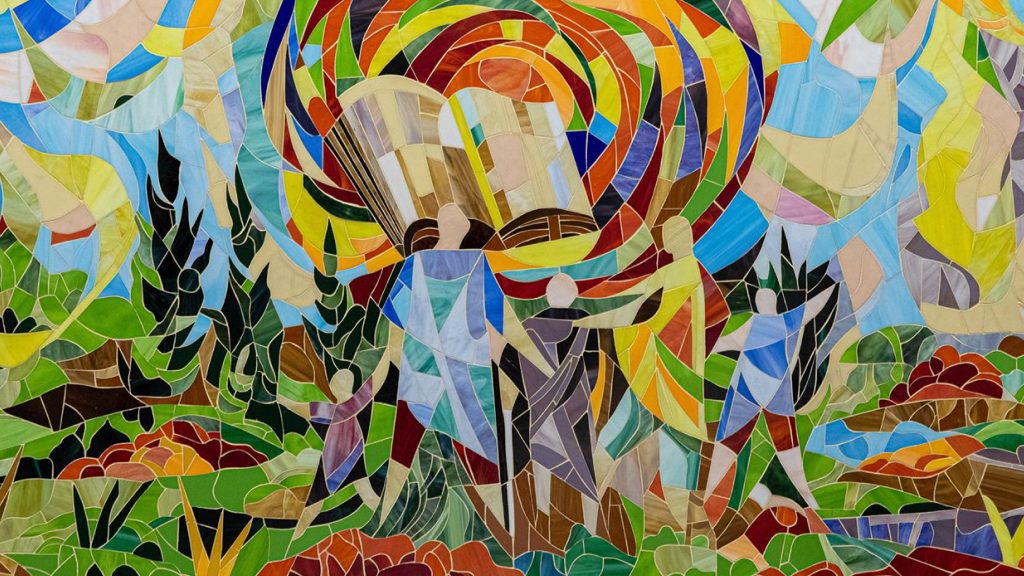Somehow, I captured the entire essence of the State of Israel in a single picture with three simple words.
Outside an apartment building in Tel Aviv reads a sign, “We have [a] shelter.”
I landed in Israel on Monday afternoon as a member of the Amplify Israel Rabbinic Fellowship. I was accepted into this fellowship in August, and blocked off this week to be in Israel shortly after. No one could have imagined the horrors that began on October 7 or that Israel would be at war.
In a yearlong program focusing on Jewish peoplehood and amplifying my voice as a Zionist, I knew that I needed to offer my hands and express my support from the ground in Israel. Miraculously, the hotel had room for our group, despite hosting over one hundred evacuees from Sderot. From the first moments on the ground, I remembered that Israel’s strength is her embodiment of the Talmudic phrase, “all of Israel is responsible for one another”.
The sign that says, “we have [a] shelter,” is an invitation for anyone when they hear a siren. Those on the street, whether in their cars or on the sidewalk, are exposed. Additionally, not all buildings in Tel Aviv are equipped with shelters. The sign provides direction to someone with only sixty seconds to run from danger.
Every person we have met up to this point has been grateful that our group of American Jews are here supporting them. They have also expressed curiosity as to why we traveled, concerned for our safety. Even more, they keep insisting on helping us. Right now, the Israeli mentality is that there always is someone worse off.
The first day of the mission, we visited a father and a daughter–both survivors from Kibbutz Be’eri. We heard his devastating story from October 7, including his fifteen year old son asking to be buried with his surfboard in the minutes before he died. Through his tears and ours, he made sure to remind us all that they would be fine. In fact, they were good. His message to Americans was to make sure to help the other kibbutzim. That others needed more help than them.
On Wednesday, we volunteered at the Civil Emergency Headquarters, a civilian led initiative to help those who have lost everything. We joined the hundreds of other volunteers in sorting and boxing items. Some have volunteered every day since the war. Some volunteers are displaced as well. Yet, the more seasoned volunteers made sure that our group had water, food, and the official “civilian war room” t-shirts.
Our group traveled north to Kibbutz Mishmar HaEmek and then Givat Haviva, two places that took in large numbers of evacuees. Givat Haviva is a civil society organization that brings students together to model what a shared society can look like between Jewish and Arab Israelis. We heard from Mohammad Darwashe, Director of Planning, Equality and Shared Society at Givat Haviva. Most poignantly, Darwashe reminded our group that the last six weeks in war has shown that the Jewish/Arab relationship is strong, even while agreeing to disagree on something as fundamental as which son Abraham nearly sacrificed.
He encouraged me to think about the values at the foundation of our Jewish state, and consider changes that would lead to equality for all people in Israel. Darwashe, too, is mourning a loss from October 7. His nephew, Awad Darwashe, died as an Israeli soldier. Arab Israelis do not have the same compulsory service as Jewish Israelis, and yet, not only did Awad serve, when faced by Hamas, he told his Israeli brothers that because he spoke Arabic, he would be OK. Awad gave his life for the State of Israel, and as the People of Israel, we have a responsibility to honor that.
In further service of his State of Israel, Mohammad Darwashe opened Givat Haviva to anyone in need of accommodations. The organization pays roughly six thousand dollars a day to feed two hundred and sixty evacuees without government support. It was powerful and emotional to hear an Arab Israeli say to Jewish Israelis that in this difficult moment, they are safe with his community.
In this week’s Torah portion, Toldot, Jacob steals Esau’s birthright blessing. The assumption that our patriarchs and matriarchs make, is that there is only one blessing between two brothers. From each meeting this week, I am reminded that blessings and opportunities are not all or nothing. In fact, Jacob will learn for his grandchildren Ephraim and Menashe, that more blessings are just that, more.
While there are countless places to donate right now, I invite you to join me in supporting the Givat Haviva Center in their effort to provide aid to over two hundred and sixty who needed to evacuate. In memory of Awad Darwashe, and in honor of the dream that one day, Jews and Arabs will be able to truly live equally as Israelis. If you are moved, please donate to the Rabbis’ Discretionary Fund noting the Givat Haviva Center, so we can make one donation on behalf of Temple Beth El. My hope is that the Givat Haviva Center will feel supported in their sacred work. Perhaps this one meeting will lead to the beginning of a partnership between Temple Beth El and the Givat Haviva Center, and that future groups can visit.
Unlike the picture that tells a story of Israel in three words, I have many more words to share. These last four days have been among the most powerful of my life. I am immensely grateful for the opportunity to amplify my voice as a Zionist, to represent Temple Beth El, and in a few short hours– to celebrate Shabbat in the East.
I look forward to sharing more of this incredible experience from the Bima, in the classroom, and over coffee.
Shabbat Shalom,










